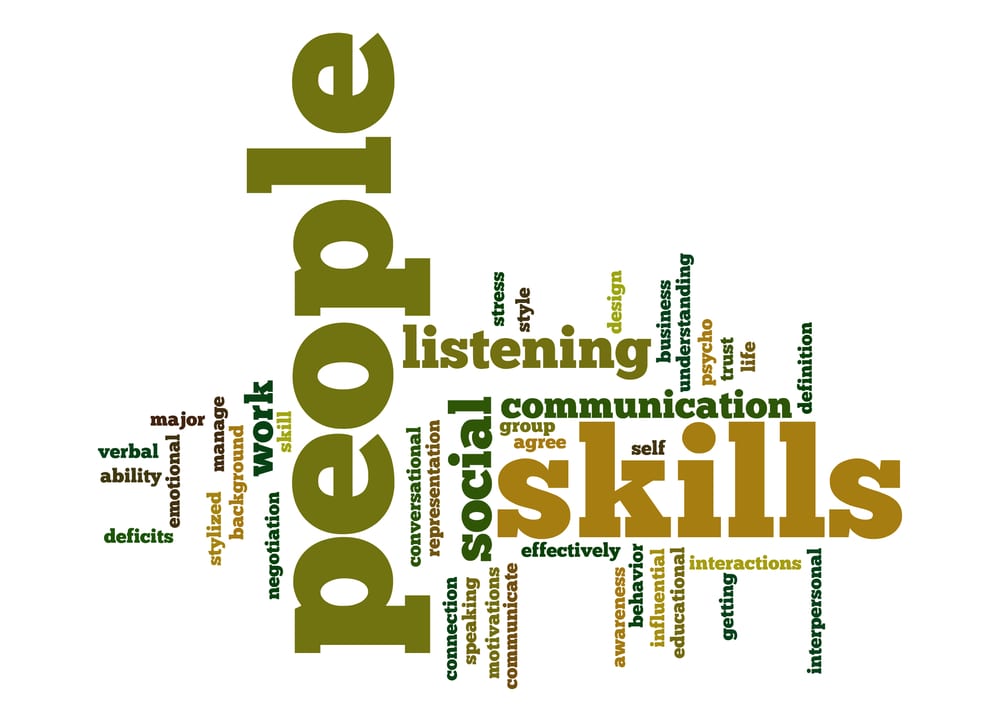Most job descriptions now ask for “strong people skills” or “good interpersonal skills”. Yet finance professionals have traditionally focussed on technical skills in their Continuing Professional Development (CPD). Not anymore.
In fact, the Chartered Institute of Management Accountants (CIMA) now says modern accountants need to show technical, business, people and leadership skills on their CVs. CIMA calls these the ‘four competencies”. To progress to senior finance roles, your CV needs to show how you use those people and leadership skills to apply your technical and business expertise.
We’ve previously looked at how best to highlight your technical skills and your business skills. Now we’ll show you how to present your people competencies in a clear and compelling way.
What are your people skills?
CIMA defines people skills as the ability of finance professionals: “…to influence the decisions, actions and behaviours of decision-makers and others throughout the organisation and its stakeholders.” They include ’soft skills’, such as relationship building and emotional intelligence.
That sounds straightforward in theory. But, it can be difficult to demonstrate with tangible achievements on your CV. A great way to start self-assessing your people skills is to think about your key professional relationships.
Think about how you interact with your immediate team, other colleagues, line managers, senior leaders and stakeholders across the business. Who do you get on well with and why? What difficult relationships have you turned around? Where are the pain points?
Then, look at the following four areas and come up with examples of your exceptional people skills:
Influencing and negotiation: the ability to persuade others to support an idea or agree to a proposal is extremely useful. Think of actions you have taken to influence others or establish credibility. Have you combined empathy with data to address colleague or client concerns? Do you tailor your communication style to influence and engage with different audiences?
Decision-Making: this is all about taking astute decisions and accepting accountability, often under pressure. It is not only about making the best business choices, but also explaining how and why you made them. Can you find examples of situations where you have done this using logic, common sense and a comprehensive evaluation of all the options?
Communication is a huge area but the key elements for accountants at all levels are:
Can you explain your ideas succinctly and present confidently?
Can you challenge difficult people in an assertive way – while keeping your cool?
Can you listen actively and with empathy?
Can you write in a way people (even non-accountants) find engaging and easy to understand?
Collaboration and Partnering: here we are looking for examples of your emotional intelligence. Can you put yourself in another’s position, understand their objectives and adapt accordingly? Can you demonstrate where you’ve worked closely with someone to deliver common objectives, or separate objectives in a ‘win-win’ outcome?
It is crucial in your CV and at interviews to be able to talk about building personal and business networks. This could include examples from outside your professional life, for instance your work as a social volunteer, school governor or charity trustee. The best examples are those that show how you’ve worked with commercial or operational partners to deliver bottom-line results.
Recruiters will be looking for evidence of a range of people skills. They will also be assessing your CV itself. Is it a shining example of clear, succinct, relevant and engaging writing? If you’d like more help and advice on putting together an effective finance CV (including all four competencies – technical, business, people and leadership) contact us.

